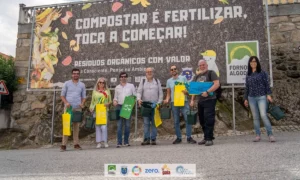From China to Spain: all the way to Zero Waste
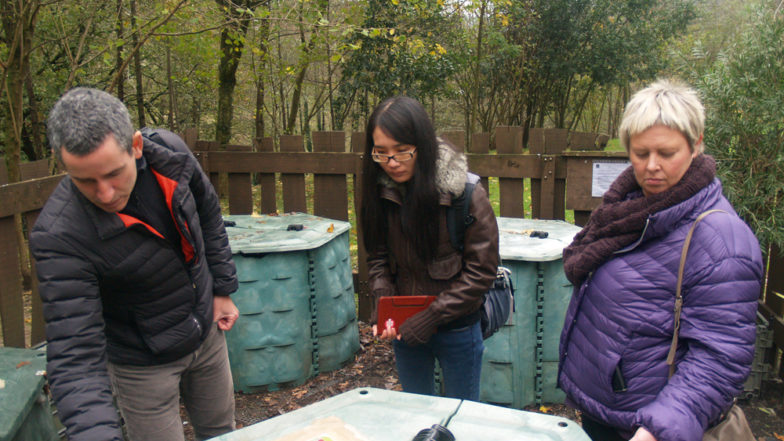
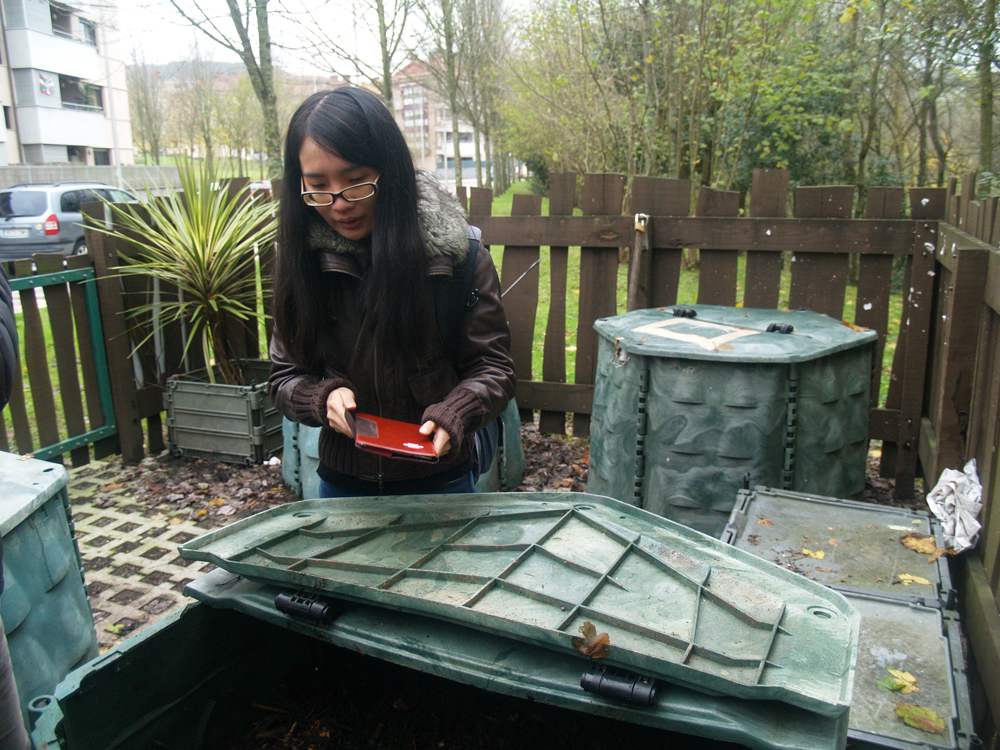
From December 8th to 12th, Zero Waste Europe welcomed Yimin of Eco Canton, an association based in Guangzhou, South-East of China, member of the China Zero Waste Alliance. Yimin, who has been taking part of a twinning exchange with Zero Waste France for the last weeks, travelled all the way to Spain, in order to learn more about waste management and reduction systems in Barcelona and the Basque Country.
Her trip, supported by GAIA, started in Barcelona, where Yimin met ZWE Director Joan Marc Simon. They visited a Community Compost Site, a Reuse and Recycling Centre and Yimin got useful insights on how waste collection works in Barcelona. Yimin was positively impressed in particular by the color-based waste separation system (brown bins for organic waste, yellow bins for packages, blue bins for paper, green bins for glasses and grey bins for residual waste), as well as by the recycling rate of the city (around 40%). This is of course still far from the Zero Waste goal, but already much higher compared to Guangzhou, where waste is mostly sent to landfill, and sometimes incinerated. Waste picking is a common phenomenon in China and it is also increasing in Barcelona, due to the economic crises and the rise of unemployment: this is surely a common topic for future cooperation between Zero Waste Communities in China and Spain!
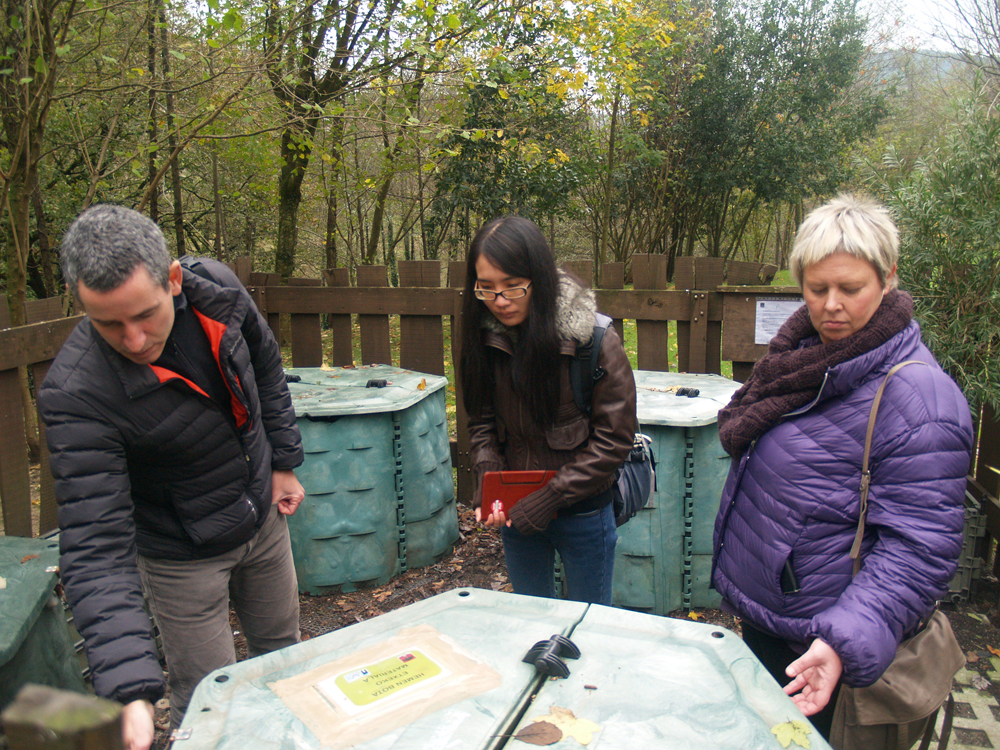
Yimin then travelled to the Basque Country, where the local Zero Zabor (Zero Waste in Euskera) association guided her around several villages to discover pro and cons of their different waste collection, separation and compost systems. She learnt in particular about the door-to-door waste collection scheme in Usurbil, the first town to implement such a system in the Basque Country. Usurbil also introduced an innovative Pay-As-You-Throw method (PAYT), providing additional incentives for citizens to reduce, separate and recycle waste. Although the schemes implemented in the Basque villages might not be adapted for Guangzhou, a city of 15 million inhabitants, their experiences are of the utmost interest for the villages in the outskirts the Chinese megalopolis. The following days the visit continued at a compost plant, a landfill, and at a quarry site in Gipuzkoa. The quarry has in fact been identified by GHK, the provincial waste management organization in the Basque country, as a potential dump site for residual waste.
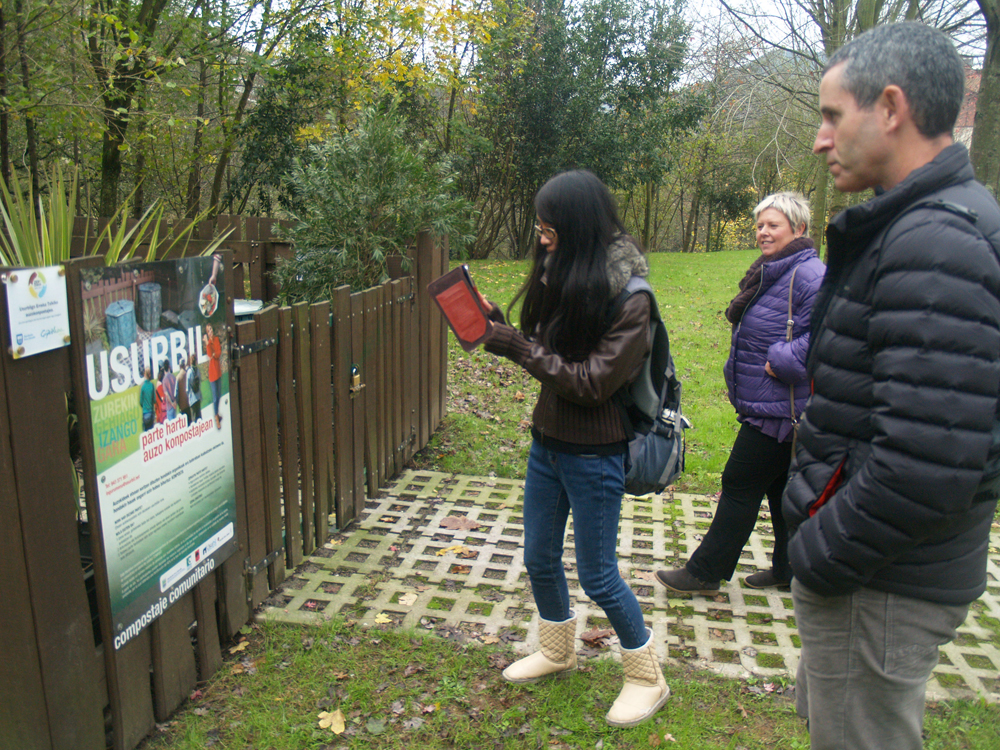
Yimin appreciated GHZ’s commitment to close all landfills and explore innovative ways to deal with residual waste in the future. But what probably struck her the most during her visit, it was the citizens’ awareness of the importance of waste avoidance and separation, and their involvement in community initiatives, being them compost sites, city farms, or reuse centres. Zero Waste Europe looks forward to welcome more foreign visitors in the future, to exchange best practices and create synergies, on the road to Zero Waste!
See press reports (in Basque):
Noaua – news article
Ataria – news article
28 Kanala – TV report


